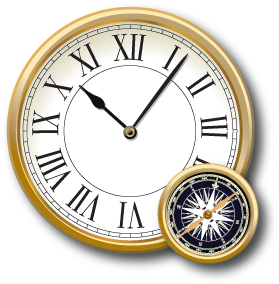A multimillionaire Wall Street banking tycoon, Alfred Loomis lacked a formal scientific education, yet he became one of the most important American scientists of World War II.
Loomis’s fascination with timekeeping precision led to the invention of LORAN, the first successful long-range, electronic area navigation system. He played a crucial role in creating the Massachusetts Institute of Technology’s Radiation Laboratory, where radar and LORAN were developed. This unlikely scientist had a huge impact on the shift in navigation technology from mechanical timekeeping to radio frequency.
“Since the stations themselves would be about a thousand miles apart, there was a problem of synchronization. [Loomis] proposed solving [it] using his specialty—in this case highly accurate quartz clocks—at each station.” – Scientist Edward Bowen, describing Loomis’s “light bulb” moment of creating the LORAN system, October 1940





